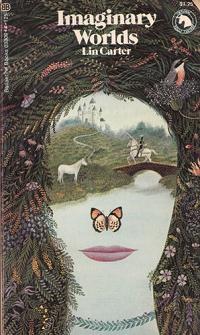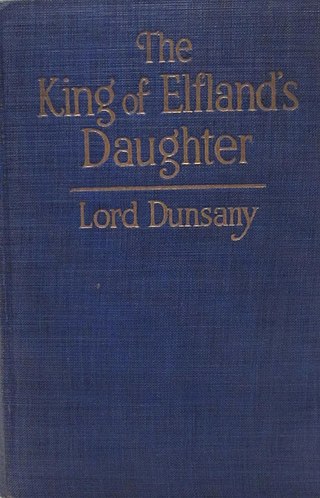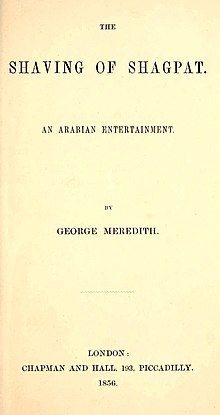
George Meredith was an English novelist and poet of the Victorian era. At first, his focus was poetry, influenced by John Keats among others, but Meredith gradually established a reputation as a novelist. The Ordeal of Richard Feverel (1859) briefly scandalised Victorian literary circles. Of his later novels, the most enduring is The Egoist (1879), though in his lifetime his greatest success was Diana of the Crossways (1885). His novels were innovative in their attention to characters' psychology, and also portrayed social change. His style, in both poetry and prose, was noted for its syntactic complexity; Oscar Wilde likened it to "chaos illumined by brilliant flashes of lightning". Meredith was an encourager of other novelists, as well as an influence on them; among those to benefit were Robert Louis Stevenson and George Gissing. Meredith was nominated for the Nobel Prize in Literature seven times.

Stanley Grauman Weinbaum was an American science fiction writer. His first story, "A Martian Odyssey", was published to great acclaim in July 1934; the alien Tweel was arguably the first character to satisfy John W. Campbell's challenge: "Write me a creature who thinks as well as a man, or better than a man, but not like a man." Weinbaum wrote more short stories and a few novels, but died from lung cancer less than a year and a half later.

Thaddeus Maxim Eugene (Ted) Dikty was an American editor who also played a role as one of the earliest science fiction anthologists, and as a publisher.

Historical fantasy is a category of fantasy and genre of historical fiction that incorporates fantastic elements into a more "realistic" narrative. There is much crossover with other subgenres of fantasy; those classed as Arthurian, Celtic, or Dark Ages could just as easily be placed in historical fantasy. Stories fitting this classification generally take place prior to the 20th century.

Lilith: A Romance is a fantasy novel by Scottish writer George MacDonald, first published in 1895. It was reprinted in paperback by Ballantine Books as the fifth volume of the Ballantine Adult Fantasy series in September 1969.

Elements of the supernatural and the fantastic were an element of literature from its beginning. The modern genre is distinguished from tales and folklore which contain fantastic elements, first by the acknowledged fictitious nature of the work, and second by the naming of an author. Works in which the marvels were not necessarily believed, or only half-believed, such as the European romances of chivalry and the tales of the Arabian Nights, slowly evolved into works with such traits. Authors like George MacDonald (1824–1905) created the first explicitly fantastic works.

The Ballantine Adult Fantasy series was an imprint of American publisher Ballantine Books. Launched in 1969, the series reissued a number of works of fantasy literature which were out of print or dispersed in back issues of pulp magazines, in cheap paperback form—including works by authors such as James Branch Cabell, Lord Dunsany, Ernest Bramah, Hope Mirrlees, and William Morris. The series lasted until 1974.

Land of Unreason is a fantasy novel by American writers Fletcher Pratt and L. Sprague de Camp. It was first published in the fantasy magazine Unknown Worlds for October, 1941 as "The Land of Unreason". Revised and expanded, it was first published in book form by Henry Holt and Company in 1942. It has been reprinted numerous times since by various publishers, including by Ballantine Books in January 1970 as the tenth volume of the Ballantine Adult Fantasy series. An E-book edition was published by Gollancz's SF Gateway imprint on September 29, 2011 as part of a general release of de Camp's works in electronic form.

The Return of Conan is a 1957 fantasy novel written by Björn Nyberg and L. Sprague de Camp, featuring Robert E. Howard's sword and sorcery hero Conan the Barbarian. It was first published in hardcover by Gnome Press and in paperback by Lancer Books as part of the collection Conan the Avenger in 1968; in this form it has been reprinted a number of times since by various publishers. It has also been translated into Japanese, German and Spanish.
Everett Franklin Bleiler was an American editor, bibliographer, and scholar of science fiction, detective fiction, and fantasy literature. In the late 1940s and early 1950s, he co-edited the first "year's best" series of science fiction anthologies, and his Checklist of Fantastic Literature has been called "the foundation of modern SF bibliography". Among his other scholarly works are two Hugo Award–nominated volumes concerning early science fiction—Science-Fiction: The Early Years and Science-Fiction: The Gernsback Years—and the massive Guide to Supernatural Fiction.
Richard James Bleiler is an American bibliographer of science fiction, fantasy, horror, crime, and adventure fiction. He was nominated for the Bram Stoker Award for Best Non-Fiction in 2002 and for the Munsey Award in 2019–2022. He won the 2023 Munsey Award, given to “an individual or organization that has bettered the pulp community.” He is the son of bibliographer and publisher Everett F. Bleiler.
John William Wall, pen name Sarban, was a British writer and diplomat. Wall's diplomatic career lasted more than thirty years, but his writing career as Sarban was brief and not prolific, ending during the early 1950s. Sarban is described in The Encyclopedia of Fantasy as "a subtle, literate teller of tales, conscious of the darker and less acceptable implications that underlie much popular literature". Wall cited the supernatural fiction of Arthur Machen and Walter de la Mare as influences on his work.

The King of Elfland's Daughter is a 1924 fantasy novel by Anglo-Irish writer Lord Dunsany. It is widely recognized as one of the most influential and acclaimed works in all of fantasy literature. Although the novel faded into relative obscurity following its initial release, it found new longevity and wider critical acclaim when a paperback edition was released in 1969 as the second volume of the Ballantine Adult Fantasy series.

The Charwoman's Shadow is a 1926 fantasy novel by Anglo-Irish writer Lord Dunsany. It is among the pioneering works in the field, published before the genre was named "fantasy".

The Broken Sword is a fantasy novel by American writer Poul Anderson, originally published on 5 November 1954. It was issued in a revised edition by Ballantine Books as the twenty-fourth volume of their Ballantine Adult Fantasy series in January 1971. The original text was returned to print by Gollancz in 2002. The novel is set during the Viking Age and the story contains many references to the Norse mythology.

Great Short Novels of Adult Fantasy I is an anthology of fantasy novellas, edited by American writer Lin Carter. It was first published in paperback by Ballantine Books in September, 1972 as the fifty-second volume of its Ballantine Adult Fantasy series. It was the eighth such anthology assembled by Carter for the series.

Great Short Novels of Adult Fantasy Volume II is an anthology of fantasy novellas, edited by American writer Lin Carter. It was first published in paperback by Ballantine Books in March, 1973 as the fifty-sixth volume of its Ballantine Adult Fantasy series. It was the ninth such anthology assembled by Carter for the series.

The Blind Spot is a science fiction novel by American writers Austin Hall and Homer Eon Flint. The novel was originally serialized in six parts in the magazine Argosy beginning in May 1921. It was first published in book form in 1951 by Prime Press in an edition of 74,200 copies, though fewer than 800 were actually bound, and the remainder are assumed lost. The sequel, The Spot of Life, was written by Hall alone.

Conjure Wife (1943) is a supernatural horror novel by American writer Fritz Leiber. Its premise is that witchcraft flourishes as an open secret among women. The story is told from the point of view of a small-town college professor who discovers that his wife is a witch.

Amazing Stories Annual was a pulp magazine which published a single issue in July 1927. It was edited by Hugo Gernsback, and featured the first publication of The Master Mind of Mars, by Edgar Rice Burroughs, which had been rejected by several other magazines, perhaps because the plot included a satire on religious fundamentalism. The other stories in Amazing Stories Annual were reprints, including two stories by A. Merritt, and one by H.G. Wells. The magazine sold out, and its success led Gernsback to launch Amazing Stories Quarterly the following year.

















